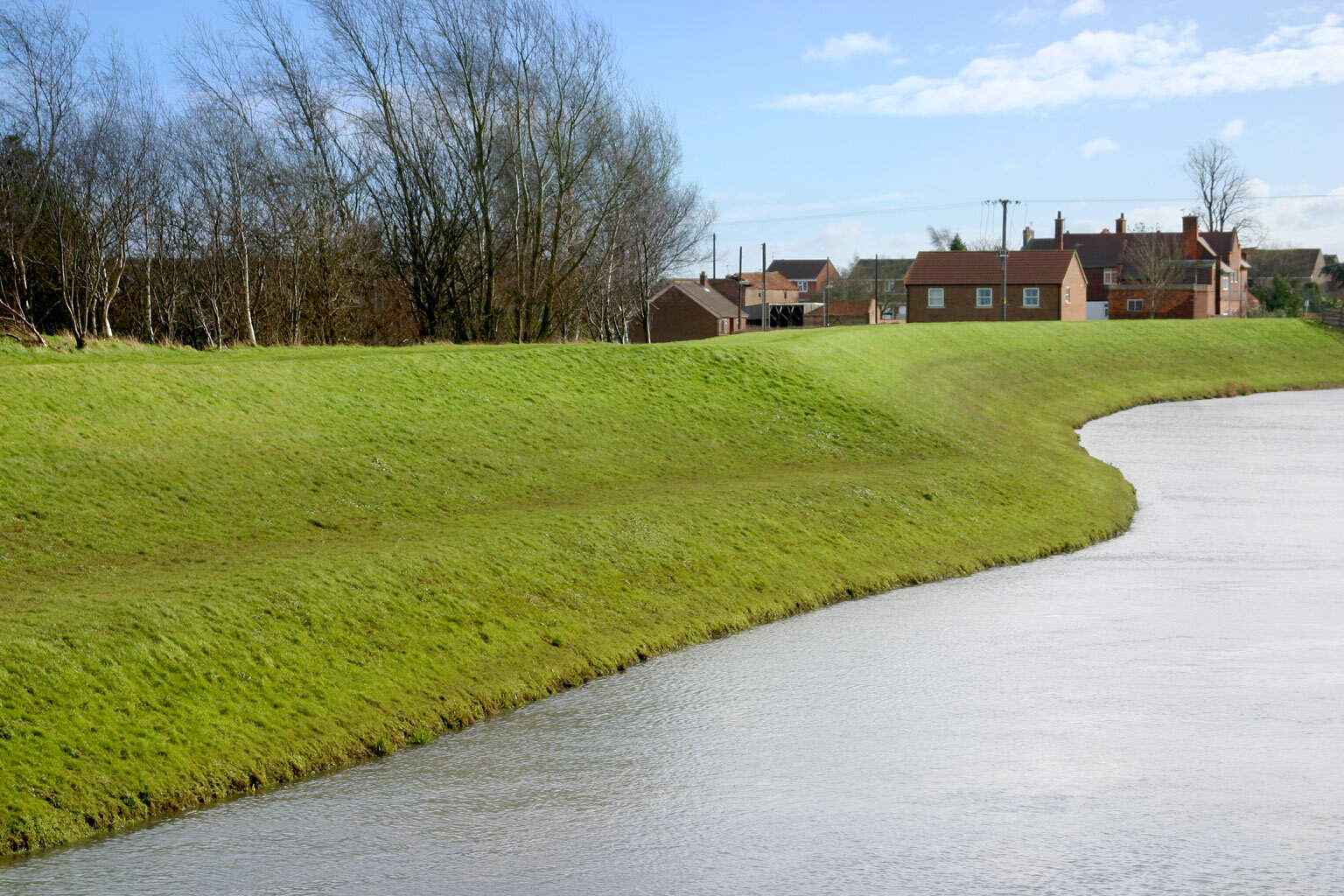
CASE STUDY
Blending game design and learning tech in hyper-real flood defence training
The Environment Agency manages billions of pounds worth of assets that protect homes, businesses and infrastructure from flooding. Maintaining these, and public safety, starts with the inspectors who assess the condition of flood defences.
We brought together expertise in digital education and game design to create a course that’s giving these inspectors first-class training outcomes with greater time and cost efficiency.
Our Challenge
Much of a flood defence inspector’s expertise is gained on the job, learning from colleagues. But first they need a grounding in the fundamentals. The Environment Agency wanted to reduce the time, cost and delays of providing initial training via group field visits.
But compromising on the detail, accuracy and nuance of the real world was not an option.
Our approach
We created a piece of digital learning that combined:
interactive tutorials covering principles of flood risk management
3D models of flood defences for asset grading practice.
Grading assets means looking closely at fine details. So our developers used games technology to model virtual flood defences that let learners see every seal, crack, patch and blade of grass. We also gave the trainee inspectors 360° freedom to view structures and features from every angle and distance.
But the overall product is more than just a game-like world.
We worked closely with Environment Agency subject experts to ensure the surrounding tutorials introduced the underpinning processes and knowledge in a way learners would remember.
This included ensuring the structure, flow and information build was clear and logical, as well as presenting content in a way that required learners’ continuous active engagement.
Together, the elements of the Asset Condition Grading course provide a rounded training experience where users apply knowledge as it is gained – cementing the learning and improving knowledge transfer to the field.

The Results
With this tool the Environment Agency has also been able to double the number of people who can undergo field-based training each year – and reduced the average cost per delegate by a third.
Even more importantly, the digital Asset Condition Grading course has been well-received throughout the Environment Agency.
The course is respected by learners as well as their managers and subject experts – whose feedback indicates that the overall quality of learning outcomes has improved.
“The course paid for itself within the first 12 months of use, and it continues to save us money.”
Environment Agency

“This solution has convinced business partners that innovative training can have a positive impact at individual, team, departmental and organisational levels.”
Environment Agency



